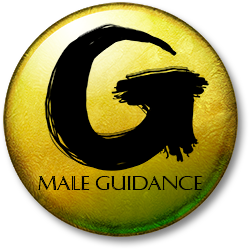
Thriving After 50: A Guide to Hormonal Health
Understanding Your Body’s Hormones
Our bodies are amazing machines, constantly working behind the scenes to keep us healthy and functioning. Part of this internal orchestra is played by hormones, chemical messengers that travel through your bloodstream like tiny VIPs. These important molecules tell your organs, tissues, and cells what to do, influencing everything from your mood and metabolism to your growth and development.
As we age, however, hormone production naturally starts to slow down. This shift, especially after age 50, can lead to a bit of a hormonal imbalance. It’s like the orchestra is missing a few key instruments, and the music might sound off. This can cause a variety of symptoms that can impact your health and well-being.
This article will explore what happens to our hormones after 50, particularly focusing on testosterone, and how we can manage these changes to feel our best.
Understanding Hormonal Shifts After 50
One of the hormones that gets a lot of attention is testosterone. This hormone plays a starring role in many bodily functions, especially for men. In guys, testosterone is responsible for things like building muscle, keeping your sex drive strong, and giving you energy. But as men age, testosterone levels start to decline. This can lead to a decrease in muscle mass and strength, a dip in libido (sex drive), and lower energy levels. Men might also notice an increase in body fat.
Women also produce testosterone, although in much smaller amounts. In women, testosterone helps maintain bone density, keeps your mood stable, and contributes to a healthy sex life. After 50, women experience a decline in other hormones like estrogen, but testosterone levels also see a gradual drop. This can cause symptoms like decreased sex drive, bone loss, and mood swings. Some women might also have trouble sleeping.
Taking Charge: Managing Hormonal Changes
So, what can you do if you’re feeling the effects of hormonal changes after 50? Luckily, there are ways to manage these shifts and feel your best. Here are two main approaches:
First, focus on healthy lifestyle habits. Think of these as natural ways to tune up your body’s hormonal orchestra. Eating a balanced diet with plenty of fruits, vegetables, and whole grains provides your body with the building blocks it needs to function smoothly. Regular exercise is another key player. Aim for at least 30 minutes of moderate-intensity activity most days of the week. Exercise helps maintain muscle mass, boosts your mood, and improves sleep quality – all factors that can be affected by hormonal changes.
Stress can also wreak havoc on your hormones. So finding healthy ways to manage stress is important. Techniques like yoga, meditation, or simply spending time in nature can all help you de-stress and keep your hormones in better balance. Maintaining a healthy weight can also be beneficial. Extra pounds can disrupt hormone production, so keeping your weight in a healthy range is a smart move.
The other approach to managing hormonal changes is hormone replacement therapy, or HRT. HRT involves taking hormones, like testosterone or estrogen, to replace the ones your body is no longer producing as much of. While HRT can be helpful for some people, it’s not a one-size-fits-all solution. There can be side effects, and it’s important to talk to your doctor about whether HRT is right for you. They can discuss the risks and benefits and create a personalized plan if it’s a good option.
The Takeaway: Staying on Top of Your Hormones
Remember, you’re not alone in experiencing hormonal changes after 50. It’s a normal part of aging. But that doesn’t mean you have to just sit back and accept the symptoms. By taking a proactive approach, you can manage these changes and feel your best.
The first step is talking to your doctor. They can assess your individual situation and recommend the best course of action, whether it’s lifestyle changes, hormone replacement therapy, or a combination of both. There might also be some alternative or complementary therapies that could be helpful, so be sure to discuss those with your doctor as well.
The key is to be informed and take charge of your health. By understanding your hormones and taking steps to manage them, you can stay active, healthy, and feel great well into your golden years.











